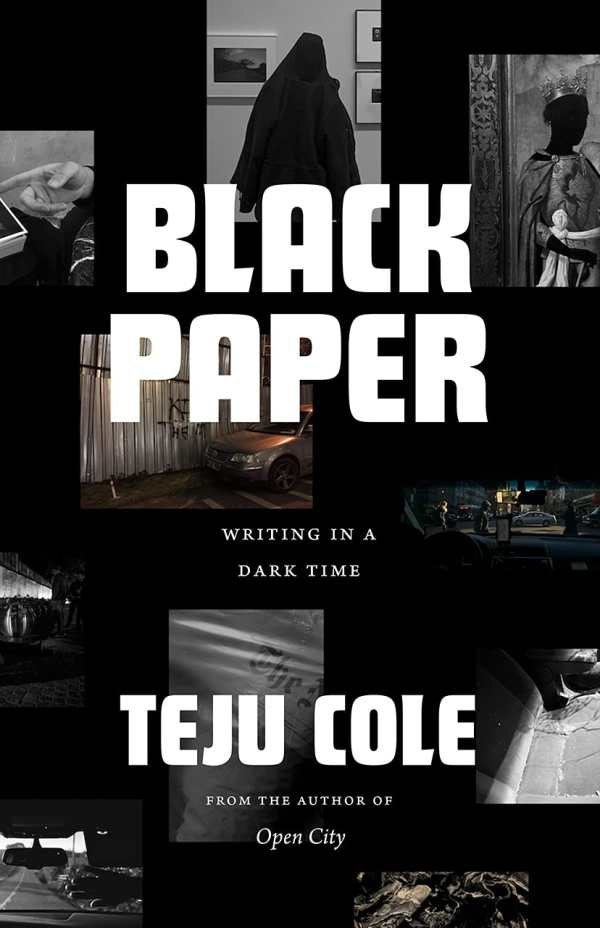Black Paper
Writing in a Dark Time
Art is the lens through which Teju Cole examines and makes sense of our shared humanity in the essay collection Black Paper.
Across six sections, Cole uses different art forms, including painting, photography, and literature, to wrestle with what it means to be human during dark moments in personal or collective history. In “After Caravaggio,” Cole goes on a pilgrimage to Italy. Following the path of the painter Caravaggio as he fled criminal investigation, Cole stops where Caravaggio did and gazes upon the artist’s larger-than-life works. The need to connect with the artist opens Cole to connecting with others fleeing violence and economic inequity, refugees making the treacherous crossing from Africa to Europe. By turns personal and academic, this essay sets the tone for those to come, blending together masterpieces with the context of their creation and the experience of them in the current moment.
Meditative and complex, the collection also plays with the essay form. There are works within works, as with “Four Elegies” and “A Quartet for Edward Said.” Each is separated into four distinct sections, with the former shifting focus across four artists and the latter maintaining focus on one individual. There are essays in pieces, too, broken into sections varying in length from a single sentence to no more than a few paragraphs, as in “Passages North” and “Room 406.” But it is the title essay, “Black Paper,” that illuminates the collection’s themes of creation during adversity and of using art to process emotion. Using the simple method of a carbon paper to make a copy, Cole encapsulates his collection in a sentence: “Black transported the meaning.”
Dense and provocative, the essays in Black Paper are a reminder that darkness cannot last forever, and even within it, there is meaning and hope.
Reviewed by
Dontaná McPherson-Joseph
Disclosure: This article is not an endorsement, but a review. The publisher of this book provided free copies of the book to have their book reviewed by a professional reviewer. No fee was paid by the publisher for this review. Foreword Reviews only recommends books that we love. Foreword Magazine, Inc. is disclosing this in accordance with the Federal Trade Commission’s 16 CFR, Part 255.

